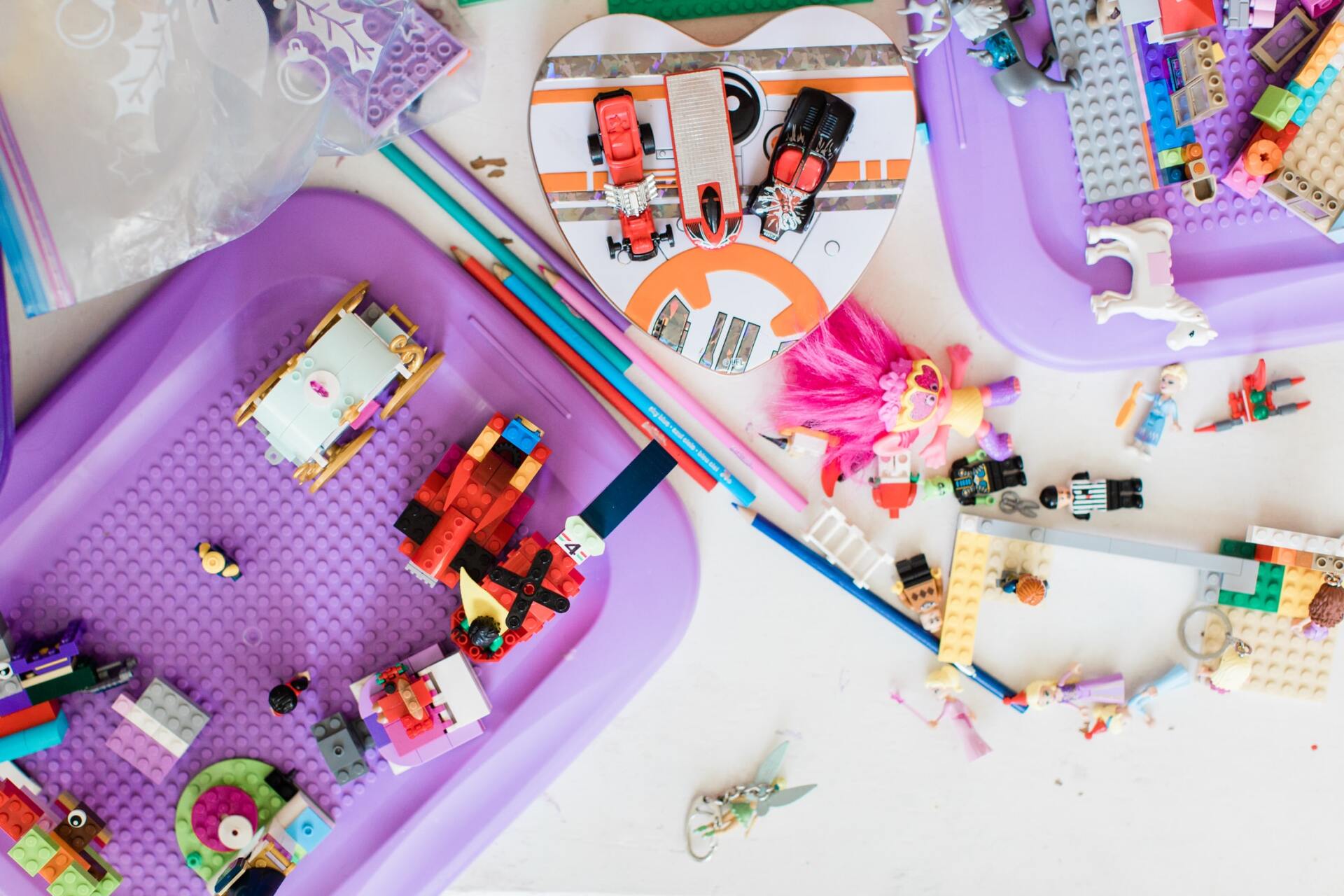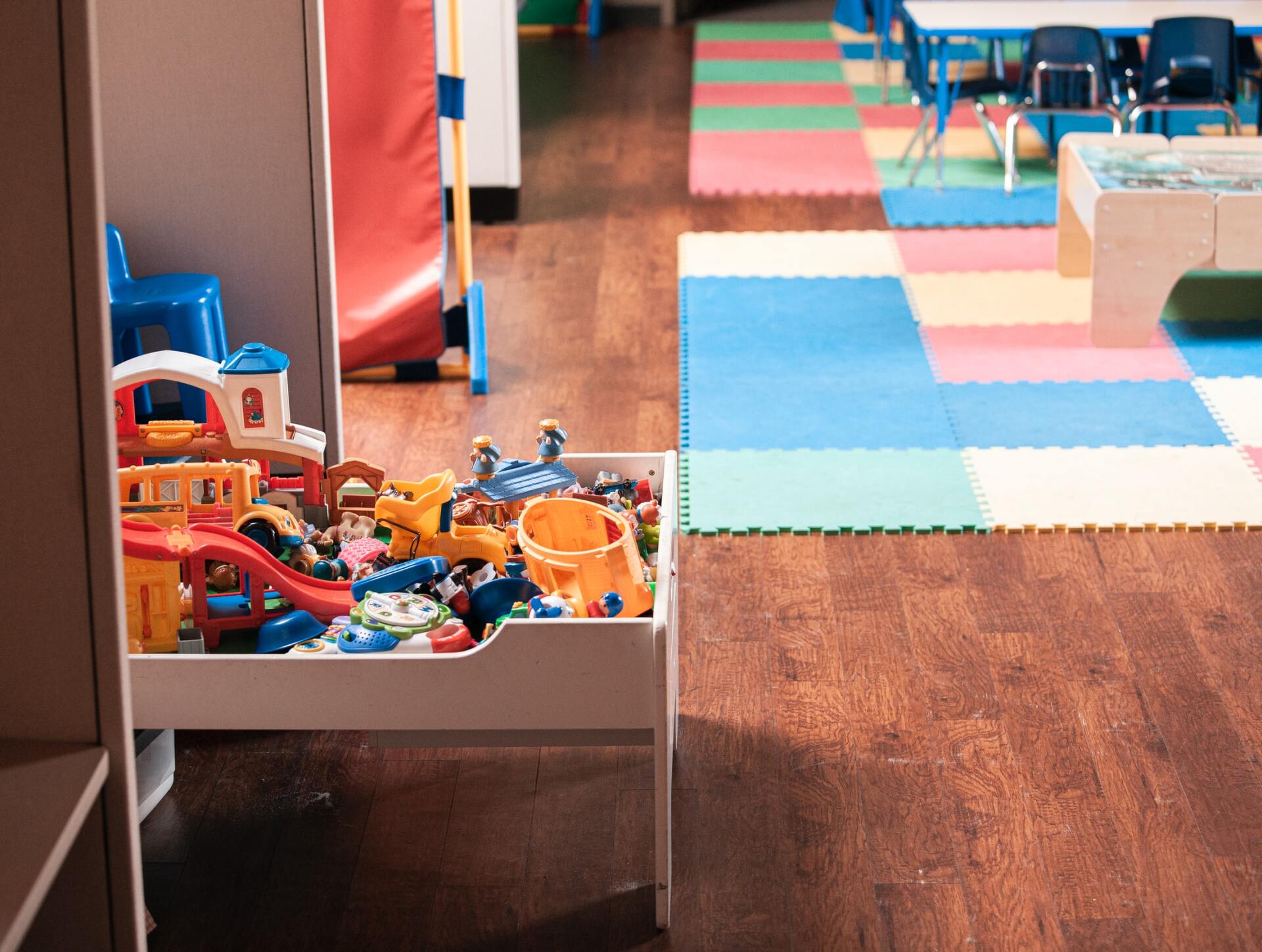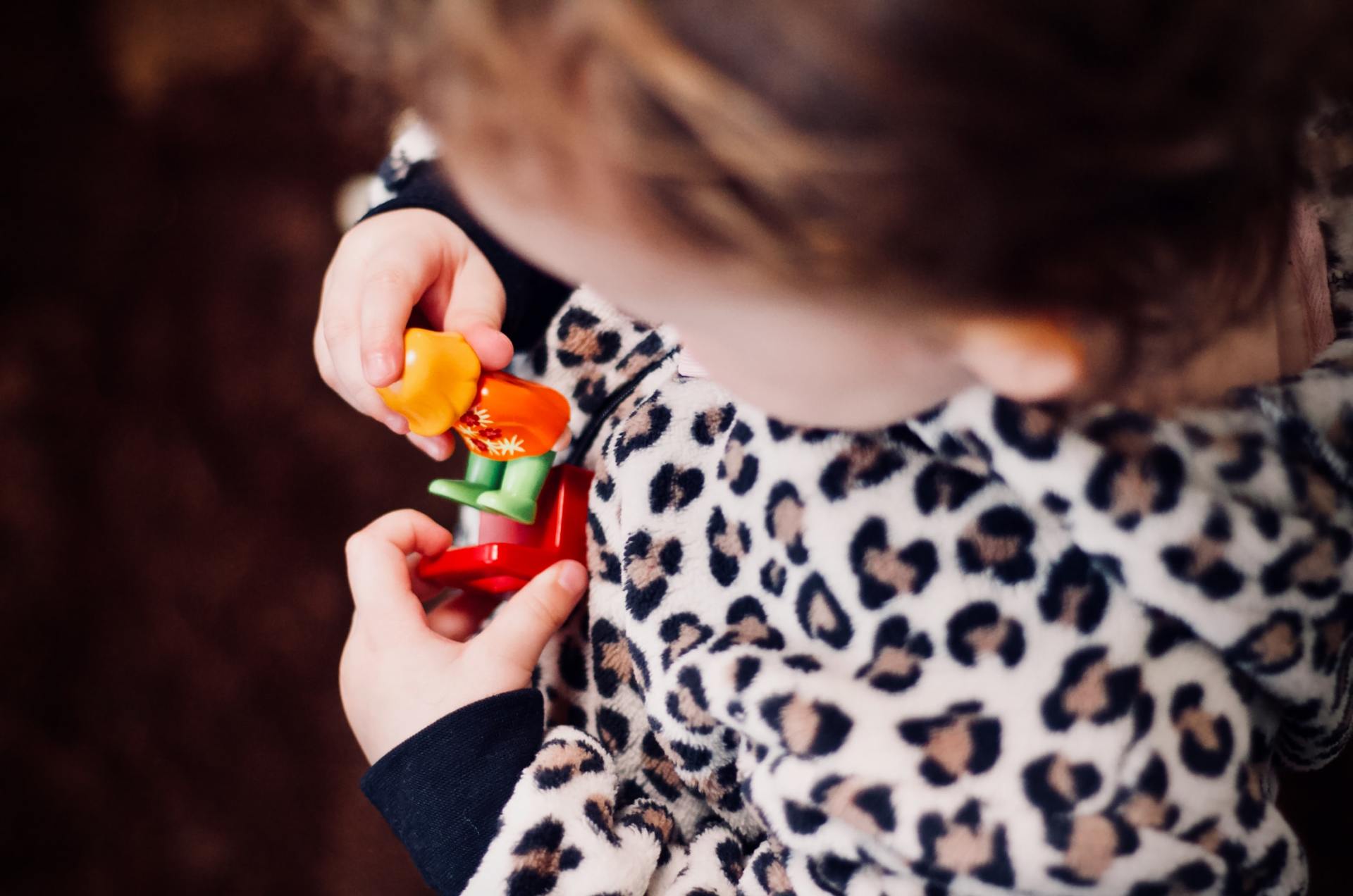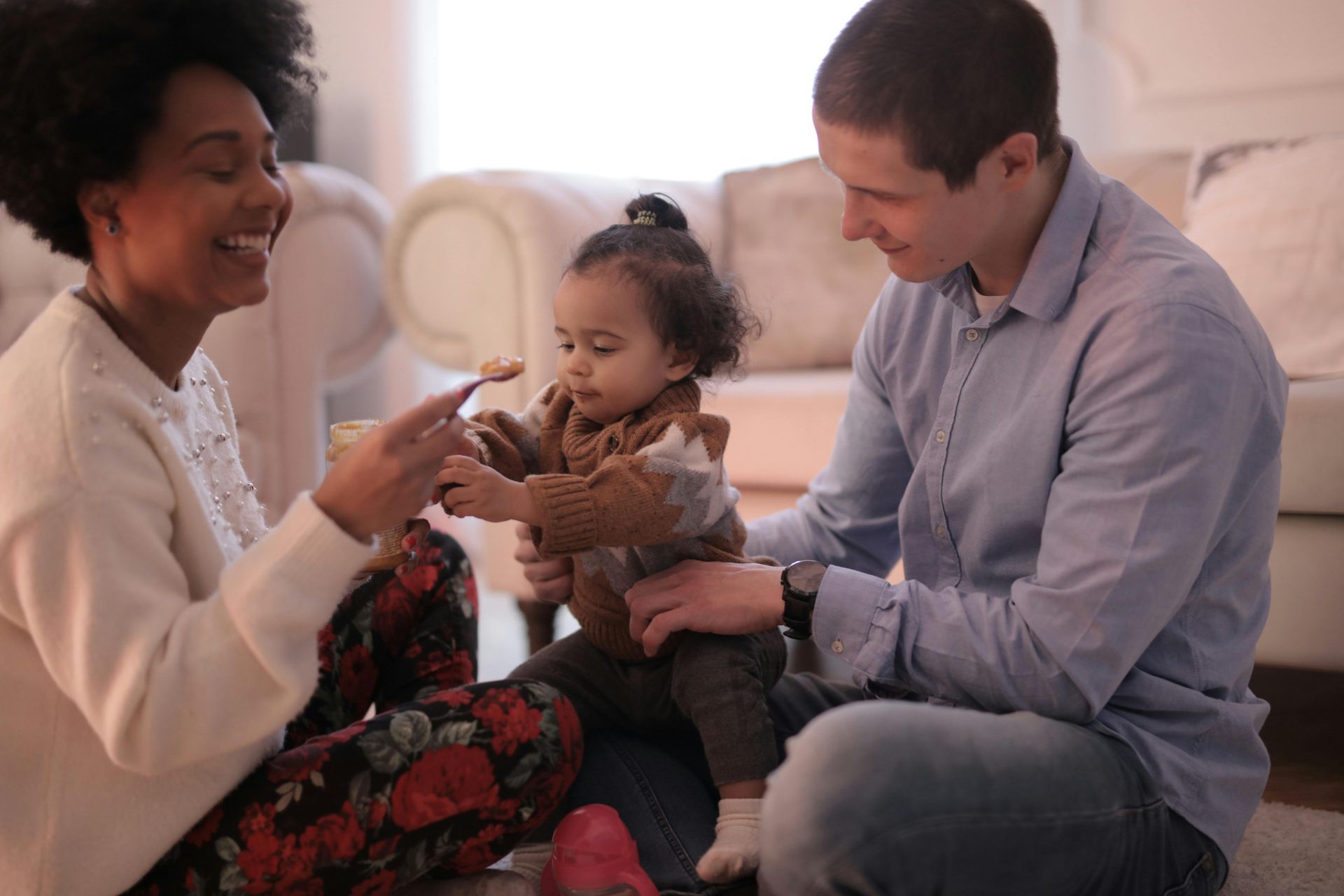"You get the kid you get and you don't throw a fit." It's a piece of motherhood advice we've all heard before.
- It's when our babies are colicky and we wonder why they won't behave like all the "normal" infants.
- When our toddlers keep throwing fits, despite our best attempts.
- When our teenagers break our hearts with their seemingly careless choices.
- It's a lesson that's especially poignant when patience runs thin.
Last week, one of my patients told me how her husband stormed out of their house the night before. Not for an extended period of time, just for a few minutes while he cooled off.
Her daughter was throwing a fit, something that has become a regular occurrence for the past week between the hours of 4 to 7 PM. Why? She spent the weekend at her grandparents' house, on a sleepover while mommy and daddy had a much-needed local getaway. The little girl had a great time: she went blueberry picking, went to the pet store and was treated to fast food restaurants she would otherwise never frequent. But she also didn't get enough sleep, was overstimulated and was generally exhausted by the time she got home (By the way, if you want help on temper tantrums, sign up for our free guide here).
This week, they have been playing catch-up as they focus on a steady regimen of consistent meals, consistent bedtimes and plenty of outdoor play. It's not that her grandparents did anything wrong, it's just that their sensitive child is a finally-tuned machine. It will take a week of that kind of consistency before she will get back to herself, she told me.
That's what really bugs her husband, she said. The fact their daughter can't just roll with the punches like everyone else. He wants her to be flexible. He wants her to be able to enjoy life without constantly paying attention to all of her high-maintenance needs and wants her to "grow out of this already!”
I feel for that mom. I understand that very same struggle. It happens at my house and it's a common one for so many parents.
I thought about where the friction really is in their family. It comes down to two things: an acceptance of temperament and a patience for perceived weaknesses.
Temperament
In the same way it's impossible to fit a square into a round hole of equal size, it's also impossible to parent our kids well if we don’t understand and accept their temperaments.
Temperament is a set of in-born traits that organize a child’s approach to the world (check out the Child Development Institute for more). Some of our kids are difficult. Some of them are really easy. There are some kids that are super challenging when they’re not quite rested or fed but they seem to take direction perfectly at other times, making it tricky to figure out what the heck to do with them. (The Center for Parenting Education has more information on the concept of temperament and guidance on determining your child’s). If we rely on a set parenting style alone, and don’t adjust it for the temperament of our individual children, we’re setting ourselves up for failure.
That's a hard lesson for a lot of parents to learn. This is especially true when they themselves had parents who had a really strict, no-nonsense, “just do it the way I say or else,” authoritarian parenting style. They might have a lot of pressure to do the same for their kids. Or maybe they just aren’t prepared because their first child was a breeze and their second takes a lot more work. When they look at that second kid, there can be a lot of behaviors that seem like weaknesses.
Perceived Weaknesses
I challenged my patient’s mom to think about her daughter’s idiosyncrasies as potential strengths versus weaknesses. Was there another way to frame the attributes that really challenged her?
For example, one of my daughter’s best qualities is her imagination and her creativity. She spent 30 minutes last week dancing outside by herself - tap shoes fastened, tutu fluffed, prancing around in the garden. Then, she decided she wanted to have a lemonade stand and give free ice-cold drinks to EVERY SINGLE neighbor on our street.
She's also super in-tune to other people’s emotions. If I've had a hard day or I look sad, she picks up on it immediately. If her friends get hurt or need attention, she's the first one to jump in and offer help.
At the right moment, those can be her biggest strengths. I’m in total awe of her.
But her emotional sensitivity and crazy, wild creativity also make her more highly sensitive in a more negative way. It sets her up for anxiety and fear when it comes to what might happen at the dentist (“The Berenstein Bears book said they might pull my tooth out! I can’t go!”), with the doctor (“Remember last time when we went to there and sister cried for 80 hours? I think that might happen again.”) or on a playdate if things don’t go her way (“I really wanted to play with that and Anna took my doll and now she’ll never give it back because she likes it a whole lot and she doesn’t have one so she’ll probably want to take it,” she sobs). It leads to a lot of meltdowns and whining. The worst part? They're all usually really articulate, well-constructed whine and cry sessions.
At those moments, if I’m being honest, I am not focused on her strengths. All I see are weaknesses. But the truth is, if she didn’t have that extreme sensitivity, the things that sometimes drive her dad and I to our wit’s end, she wouldn't have the other amazing parts about her. It’s up to us as parents to work on coaching her so that she can eventually (we’re talking months to years, not days), learn to control the emotions that come washing over her and use her logical brain to make more of her decisions, allowing her to be on an even keel more often.
I want to be real about the sense of loss that all of us face with our kids at some time or another.
The realization that our kids are not perfect. The reality that sometimes we are really embarrassed by the way they act. The fact that sometimes we wonder WHAT THE WHAT we are doing so wrong to make our kids have the “weaknesses” they do.
Of course, sometimes things really are out of hand and you need extra help from your pediatrician or a mental health professional. All situations are not created equal and having an outside point of view can be necessary. But, for those all too common, “I thought we just went over this with you yesterday so why are you acting like this again?” moments with our kids, remember that each of our children is a unique being, that their temperament is individual and that they’re trying their best to work with their strengths and “weaknesses,” just like you.















